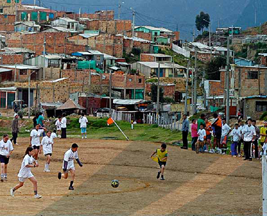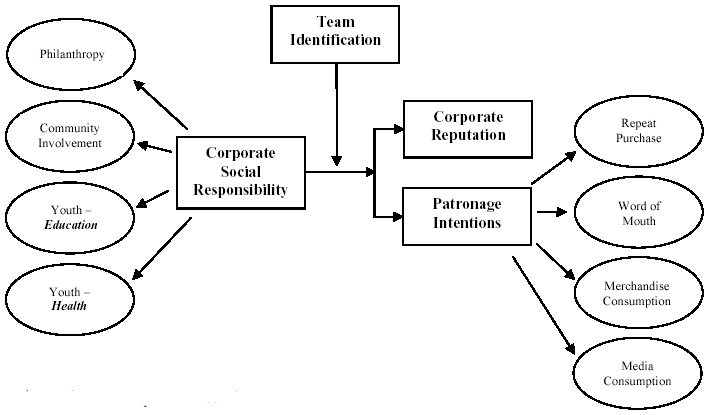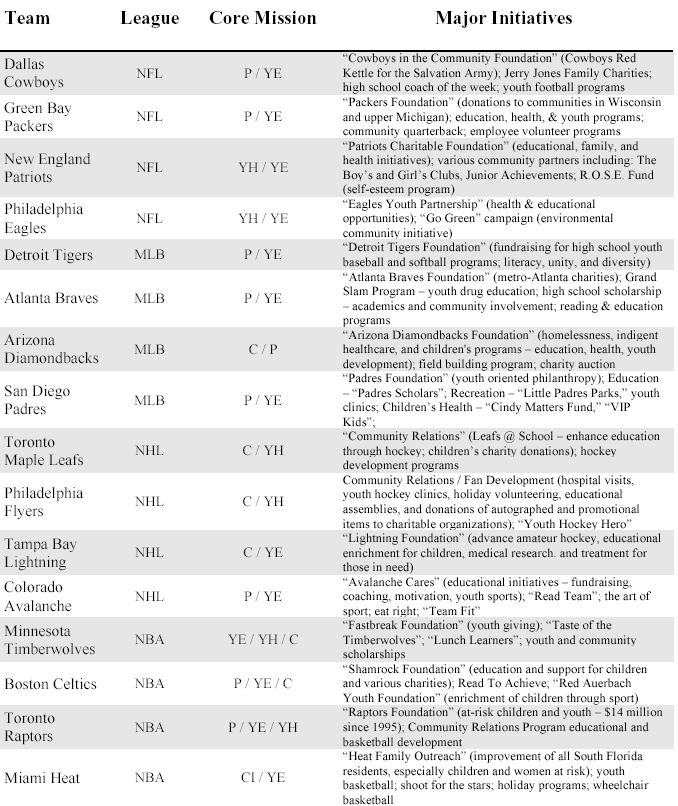Football is the most popular sports on our planet and has a fan base of more then 3 billion. It is played in almost all countries, with millions of fans and small time players competing and playing at different levels of the sport. With such a huge involvement of professionals, semi professionals, amateurs and fans, the game commands a very huge involvement and awareness among a very wide group of people.
Unlike ‘elite sports’ such as Golf, Chess and racquet games and other such sports that require expensive infrastructure, all that is required to play football is a reasonably level and open ground and a football costing a few dollars. Consequently, the game is played by different social groups ranging from people in slums and very poor and developing countries to the affluent class of people. Social responsibility is the process in which organisations measure the impact of their activity on the society and attempt to ensure that the impact is positive by intervention. With such a large involvement of the public, there is tremendous potential for football to assume the mantle of being socially responsible. The paper assesses the extent to which the football industry from should be socially responsible.
Corporate Social Responsibility
CSR – Corporate Social Responsibility is the process and concept in which organisations give considerations to the interests and impact to the society and the environment in which they operate. The process extends much beyond the mandatory rules and regulations and is more of giving back to the society in which the organisation operates and using resources in a responsible and sustainable manner. The emphasis is on developing the local community and helping to build the infrastructure for development of the community members, employees, main stakeholders and other actors. Activities that are taken up for CSR include education and development of local groups, providing jobs and employment, carrying out health and hygiene development activities, giving training to children and adults, providing therapy and learning sessions to make people move away from social ills, drugs and alcohol, carrying out sustainable development of the region and so on.
“In its broadest sense, corporate social responsibility represents a concern with the needs and goals of society, which goes beyond the merely economic. Insofar as the business system as it exists today can only survive in an effectively functioning free society, the corporate social responsibility movement represents a broad concern with the business’s role in supporting and improving that social order” (Eells, 1974).
Football with its mass appeal and wide public involvement presents a very good choice for organizations to be socially responsible. By organisations, we mean the football teams that actually play the game, government organisations that set up the infrastructure for promotion of the game , business organisations the sponsor development activities and individual players who spend their valuable time in helping the people. There is a lot of potential for CSR through football and the next pages will examine such instances.
CSR and Football, Evidence From the Field
In a recent speech, Mr. Blatter, the FIFA President Joseph explained the social responsibility initiatives taken up by FIFA. He explained that football being a hugely popular game, there was immense potential to wean away children and teens away from violence and other unsocial acts. By building the proper infrastructure to develop games among the socially deprived section, by providing stadiums, pitches and arenas, there is a positive movement of improving the lot of poor people. He has also mentioned that with the increase in finance an funding, the body has planned and implemented many plans for development of the game among different countries of Europe, Africa and Asia. FIFA has announced a new project called ‘Football for Hope’ and it aims at involving thousands of underprivileged children from poorer sections of England, France and African countries. (FIFA, 31 May 2007).
“The Football for Hope Movement, a key element of the strategic alliance between streetfootballworld and FIFA, builds a solid bridge between development and football. The world of football recognises that the beautiful game itself is part of the solution and has teamed up to further the cause of development – a huge opportunity and an immense responsibility“( FIFA, 2007)

Walker (2007) has provided a conceptual framework for development of CSR through sports and football and the model is illustrated in the following figure.

The model is based on four independent variables of CSR and they are community involvement youth programs, philanthropy and youth health and these make up the CSR. When businesses and organisations take up CSR, they would have four dimensions of patronage intentions and these are merchandise consumption, word of mouth, media consumption and repeat purchase. These dimensions would impact dependant variables such as the patronage intention and corporate reputation. Put in simple terms, the model attempts to analyse what businesses get when they fund CSR initiatives and these are given in the four independent variables of CSR.
Given in the following figure are some CSR initiatives taken up by different sports teams for CSR. While the list includes teams that do not play football, it should be understood that such examples have a spill over effect and act as a goad into prompting other teams and games to reciprocate and take up CSR activities.

Walsh (2008) speaks of how positive involvement in sports such as football can help children from underprivileged societies and communities can raise their career aspirations. The author has based his studies done in schools of slums and poor neighbourhoods of Glasgow. According to the author, after sports activities were initiated in the schools, it was found that delinquency decreased by almost 43% and while more and students attended school and particularly the gym and other sports faculties, attendance at training camps for football and cricket increased dramatically.
A roster was kept that assessed the impact of school attendance for specific students and this was compared with the period when sports activity had not been introduced. The author reports that the overall attendance to non-sports classes rose by almost 57% and this suggests that involvement of students in sports increases their school attendance.
Breitbarth (2008) has researched the potential of football as a CSR tool that can be used by the English Premier League to enhance the development of the youth. The author points out that many clubs that are affiliated to the English Premier League have initiated programs where young children are brought into the club and given training. The effect is remarkable as the children get exposed to professional practices right from an early age and this leads to better development and it also ensures that children spread the word in their circles and interest in football playing assumes much more significance.
Conclusion
The paper has examined the role of football as a socially responsibility business and has examined a number of literature and resources to understand how the game assumes CSR. Organisations such as FIFA, English Premier League, various corporate and the government has sponsored and set up the infrastructure to support the game. With wider facilities being available to poorer sections of the society, the paper reports that with increase in football playing, children from poorer sections change their attitude towards school and education and there is a walking away from some of the social ills. The paper concludes that football can be considered as a means to increase social responsibility and is a tool to enhance and implement CSR.
References
- Breitbarth Tim, Harris Phil. 2 June 2008. The Role of Corporate Social Responsibility in the Football Business: Towards the Development of a Conceptual Model for the English Premier League. European Sport Management Quarterly. Volume 8. Issue 2. pp: 179 – 206
- Eells, R., & Walton, C. 1974. Conceptual foundations of business (3rd ed.). Burr Ridge, IL: Irwin.
- FIFA. 31 May 2007. Blatter stresses football’s social responsibility.
- Sen, Sankar, C. B. Bhattacharya, and Daniel Korschun. 2006. The Role of Corporate Social Responsibility in Strengthening Multiple Stakeholder Relationships: A Field Experiment. Journal of the Academy of Marketing Science, 34 (2), 158-66.
- Walker Matthew B. 2007. Assessing The Influence Of Corporate Social Responsibility On Consumer Attitudes In The Sport Industry. PhD Thesis, The Florida State University.
- Walsh David. June 2008. Helping Youth in Underserved Communities Envision Possible Futures: An extension of the teaching personal and social responsibility model. Research Quarterly for Exercise and Sport. 79(2). pp: 209-223.